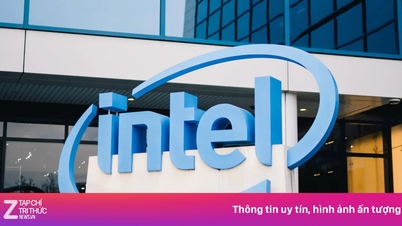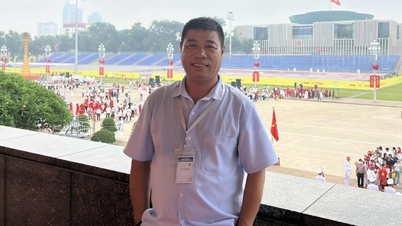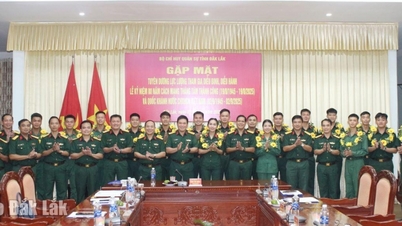
AI is "stealing" traffic from websites
While AI is getting better and better, answering quickly and accurately, users are clicking less and less on the source website. This is causing many content providers and online newspapers to lose a lot of traffic.
Some of the world's largest internet infrastructure companies are warning that this trend could put parts of the internet at risk of being strangled.
AI answers quickly, but "forgets" the original page
Previously, when you searched for information on Google or other search engines, the results would include a list of websites for users to choose to click on. But with AI tools like ChatGPT, Google AI Overview or Perplexity, the information is summarized and placed in front of users, eliminating the need for them to visit the original source.
According to network infrastructure experts, the rate of visits after AI bots scan content is seriously decreasing. Some time ago, on average, 2 bot scans would lead to 1 click. Now, it is 6 scans for 1 click.
It is worth mentioning that many AI bots today collect content without permission, without paying royalties, and without clearly citing the source . This is like "stealing books without buying them", causing content publishers to lose everything.
For content creators, this is devastating. Content without traffic means no more ad revenue, less loyal readers, loss of popularity, and poor quality or discontinued content.
Data Wars: Block AI Bots, Propose Paid Access
In the latest report, some major tech companies have started automatically blocking many types of AI bots to protect website content.
Accordingly, AI companies must register, confirm, or agree to the terms of access before scraping data from websites.
At the same time, there is a proposal to apply a "Pay Per Crawl" mechanism - that is, AI must pay each time the bot crawls the website content. This is to ensure that the creator receives the rightful benefits, instead of being "freeloaded".
Some new technological tools are also being developed such as ways to distract AI bots, leading them to fake content to reduce the effectiveness of illegal collection.
Notably, major media corporations such as The Atlantic, Fortune, Condé Nast , and The New York Times have taken strong steps to protect their content. Some require AI to sign copyright agreements , while others completely block access from popular AI bots.
The Future of the Web: AI Assist or "Suppress"?
AI is not the enemy. But AI that is not transparent and does not respect intellectual property rights will become a burden for all content providers.
Finding a way to share the benefits between the parties is the real new problem. Will users contribute in the future by paying for access to AI? Or will AI companies voluntarily stop access without permission?
Another scenario that has been mentioned is the integration of AI into the news platform itself , helping to improve the reader experience. In that case, AI acts as an assistant, while quality content still comes from real experts.
Whatever the scenario, experts say the efforts of content creators must be respected. The internet cannot thrive if its foundation, content, is stolen every day without compensation.
Source: https://tuoitre.vn/ai-dang-an-cap-luot-truy-cap-vao-trang-web-chan-bot-ai-de-xuat-tra-phi-truy-cap-20250808104735148.htm



![[Photo] General Secretary To Lam attends the 80th Anniversary of the General Staff of the Vietnam People's Army](https://vphoto.vietnam.vn/thumb/1200x675/vietnam/resource/IMAGE/2025/9/6/126697ab3e904fd68a2a510323659767)
![[Photo] Many people directly experience beloved Uncle Ho and the General Secretaries](https://vphoto.vietnam.vn/thumb/1200x675/vietnam/resource/IMAGE/2025/9/6/2f4d9a1c1ef14be3933dbef3cd5403f6)





























![[Photo] Hanoi students excitedly and joyfully open the new school year 2025-2026](https://vphoto.vietnam.vn/thumb/1200x675/vietnam/resource/IMAGE/2025/9/5/ecc91eddd50a467aa7670463f7b142f5)

































































Comment (0)